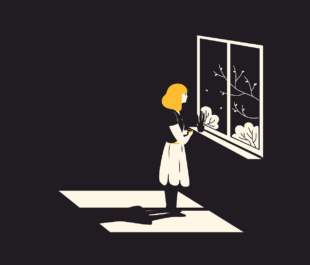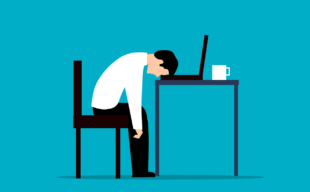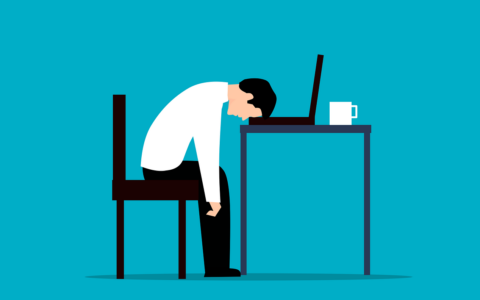Types Of Depression: There’s More Than One
Karyn George
Depression is more than feeling unhappy or down in the dumps for a few days. It is a real mental health condition that affects mood and ability to function. It can vary in intensity from mild to severe, be brought about by numerous reasons, and impact you in unique ways.
 Although the exact cause of depression is not fully known, risk factors include a family history of depression, abnormal brain chemistry, significant losses, chronic stress, and life circumstances. Typically, it develops over an extended length of time and, left untreated, can lead to a downward spiral.
Although the exact cause of depression is not fully known, risk factors include a family history of depression, abnormal brain chemistry, significant losses, chronic stress, and life circumstances. Typically, it develops over an extended length of time and, left untreated, can lead to a downward spiral.
There are many different types of depression. All of them share common symptoms such as unrelenting sadness, low mood, and a loss of interest in things once enjoyed, but there are also key differences between them.
According to the World Health Organization (WHO), over 280 million people around the world suffer from at least one of the types of depression, making it one of the most common mental illnesses in the world.
Most common types of depression.
Major depressive disorder (MDD).
Major depressive disorder, also known as major depression or clinical depression, is the classic form of depression. It is the most common and serious type of it, and what most people refer to when they speak of having depression. MDD can last for months or years and harm your ability to function and your quality of life.
Symptoms of major depressive disorder may include:
- Intense, persistent sadness.
- Low mood.
- Lack of joy.
- Hopelessness.
- Anxiety.
- Loss of interest in previously enjoyed activities.
- Withdrawing from friends and family.
- Negative thinking.
- Inability to see positive solutions.
- Trouble concentrating.
- Lack of motivation.
- Moving slower than usual.
- Fatigue.
- Sluggishness.
- Reduced sex drive.
- Unexplained body aches and pains.
- Change in appetite resulting in weight loss or weight gain.
- Trouble sleeping or sleeping too much.
- Feeling worthless.
- Suicidal thoughts.
 Major depressive disorder with psychotic features.
Major depressive disorder with psychotic features.
Major depressive disorder with psychotic features is a severe subtype of major depressive disorder that can be a frightening condition to deal with. People with this type of depression suffer from a combination of major depressive disorder symptoms and abnormal perceptions such as hallucinations and/or delusions, which can affect their sense of reality and how they see the world.
Other symptoms specific to major depressive disorder with psychotic features may include:
- Agitation.
- Confusion.
- Paranoia.
- Disorderly thoughts.
Persistent depressive disorder (PDD).
Persistent depressive disorder, sometimes referred to as high-functioning depression, is a chronic type of depression that can last for many years. It is less severe than major depressive disorder but tends to last longer. Typically, a person with PDD will feel sad and hopeless most of the time, but because he or she can function day to day, he or she may not realize anything is wrong and think that it is normal to feel this way.
Symptoms of persistent depressive disorder can include:
- Low mood.
- Sadness.
- Apathy.
- Inability to feel positive emotions such as joy during happy events.
- Tiredness.
- Lack of energy.
- Self-criticism.
- Low self-esteem.
- Trouble concentrating or making decisions.
- Feelings of guilt about things done in the past.
- Withdrawal from friends and social events.
- Trouble sleeping or sleeping too much.
- Feelings of emptiness.
Postpartum depression (PPD).
Postpartum depression is a form of depression that is triggered by the significant hormonal shifts that take place during pregnancy. It can start one to three weeks after giving birth and is more extreme than the baby blues. A major concern that women with postpartum depression often have is that they may harm their child.
Symptoms associated with PPD may include:
- Low mood.
- Sadness.
- Extreme mood swings.
- Exhaustion.
- Lack of energy.
- Panic attacks.
- Withdrawing from family and friends.
- Difficulty bonding with your baby.
- Fear of parenting.
- Changes in appetite.
- Feeling inadequate.
- Feelings of not being a good parent.
- Feeling like a failure.
- Feeling angry or irritable.
- Thoughts of hurting yourself.
- Suicidal thoughts.
 Bipolar disorder.
Bipolar disorder.
Bipolar disorder, formerly known as manic depression, consists of mood swings between extreme highs (mania) and extreme lows (depression). Bipolar depression is different than other forms of depression in that it is part of a cycle and is followed by an episode of mania.
During the depressive cycle of bipolar disorder, symptoms are similar to those of major depressive disorder and may include:
- Depressed mood.
- Apathy.
- Loss of interest in activities usually enjoyed.
- Melancholy.
- Feelings of hopelessness.
- Anxiety.
- Indecision.
- Difficulty performing even small tasks of dally living.
- Lethargy.
- Fatigue.
- Irritability.
- Trouble concentrating.
- Unexplained aches and pains.
- Feelings of guilt and shame.
- Suicidal thoughts.
Seasonal affective disorder (SAD).
Seasonal affective depression is a type of depression that is triggered by seasonal changes and that manifests at a particular time of the year. Most people with seasonal affective disorder experience it in winter when there is a reduction in sunlight (winter SAD), but a few people experience it in the summer instead (summer SAD).
Symptoms for each type of seasonal affective depression may include:
Winter SAD
- Low mood.
- Apathy.
- Drowsiness during the day and/or oversleeping.
- Brain fog.
- Increased appetite/overeating.
- Withdrawing from social activities.
- Hibernating.
- Feelings of heaviness in arms and legs.
- Decrease in sex drive.
Summer SAD
- Feeling down.
- Difficulty sleeping or insomnia.
- Lack of appetite.
- Weight loss.
Premenstrual dysphoric disorder (PMDD).
Premenstrual dysphoric disorder is a cyclic, hormonally induced type of depression that some women experience in the week to two leading up to their period. It is much more severe and disabling than premenstrual syndrome (PMS).
Symptoms of premenstrual dysphoric disorder may include:
- Sadness.
- Irritability.
- Anxiety.
- Mood swings.
- Bouts of crying.
- Trouble concentrating.
- Extreme fatigue.
- Feeling as though you are losing control.
- Food cravings and/or binge eating.
- Physical PMS symptoms such as cramps, bloating, tender breasts, headaches, and/or joint or muscle aches.
- Trouble sleeping.
 Situational depression.
Situational depression.
Situational depression is linked to the experience of a specific event such as the death of a loved one, a divorce, or the loss of a job. It is sometimes referred to as an adjustment disorder.
Symptoms of situational depression may include:
- Feeling overwhelmed and emotionally distressed.
- Inability to stop worrying.
- Crying spells.
- Difficulty making decisions.
- Feeling worthless.
Atypical depression.
Atypical depression is a unique type of depression that temporarily gets better when good things happen to the person.
Symptoms of atypical depression may include:
- Significant increase in appetite.
- Super sensitivity to personal rejection.
- Feeling weighed down.
- Sleeping too much.
- Weight gain.
- Reactive moods that are lifted up when you experience a happy event.
If you think you are experiencing signs of depression, and your symptoms have lasted two weeks or longer, it is important to reach out for help as soon as possible. Depressive disorders are highly treatable but are unlikely to improve on their own.
A trained mental health professional can provide a diagnosis, help you understand your type of depression, address your challenges, and learn how to manage your symptoms. You do not have to struggle alone.
Christian counseling involves a combination of secular evidence-based clinical interventions combined with Biblical principles and prayer. If you would like to schedule an appointment to meet with one of the faith-based counselors at our location, please call us today!
References:Alison Yarp. “Different Types of Depression: An Overview.” Verywell Health. Updated February 7, 2023. verywellhealth.com/different-types-of-depression-overview-5209204.
WHO Fact Sheet. “Depressive Disorder (depression).” World Health Organization. March 31, 2023. who.int/news-room/fact-sheets/detail/depression.
Photos:
“Worried”, Courtesy of Ryan McGuire, Pixabay.com, CC0 License; “Girl at the Window”, Courtesy of Irasonja, Pixabay.com, CC0 License; “Overworked”, Courtesy of Mohamed_hassan, Pixabay.com, CC0 License; “Bored”, Courtesy of Shlomaster, Pixabay.com, CC0 License






